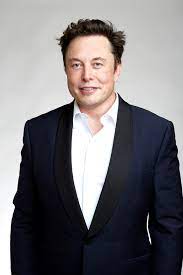Elon Musk is the worst

Elon Musk, the second richest man in the world, and terrible human being
May 16, 2022
There are many titles commonly attributed to Elon Musk: genius self-made entrepreneur, the future of space exploration, innovator in green energy, the one who will fix traffic in cities and overall relatable multibillionaire. Though he has an impressive resume, not a single one of those titles is accurate. With his recent purchase of Twitter, his name has been in the news now more than ever, and many find themselves caught off guard by the polarized views on him. It seems that everyone is either a weirdo nerd who would die to keep their messiah’s reputation untarnished, or a winey pessimistic haters who refuse to acknowledge any of the apparent good he has done. I tend to fall on the side of the latter, because I hate Elon Musk, and here’s why.
Billionaires are not in any way a unique thing, especially in the U.S. In the U.S. in particular, the wealthy have a huge amount of power. Musk is a great example of this. The U.S. Government has provided a vast amount of funding to both Tesla and SpaceX. The government funding private companies is in itself a rather sketchy process, but the products of these investments in particular have been underwhelming to say the least. Tesla, for example, has put itself in the center of architectural reforms around the country, aiming to reduce traffic. The solution Musk and Tesla have come up with for this problem is tunnels. But not any regular tunnels that contain high speed railways or subways, accessible to all the public and able to much more efficiently move the populous around the city for much cheaper, oh no. These tunnels are exclusively available to those in ownership of a Tesla. Restricting public transport to just those wealthy enough to own Teslas is malevolent in itself, but these tunnels fail in executing any form of high speed transportation effectively. The tunnels in question are one lane wide, meaning any potential accidents that occur in the tunnel would naturally lead to a disastrous traffic jam, not even mentioning the potential for any other disasters, such as fires or tunnel collapses, to which there are no proposed solutions.
Additionally, the founder position that Elon Musk holds at Tesla is rather misleading. In reality, Tesla Motors has been in operation since 2003, and Musk’s position as CEO was not earned, further decreasing the narrative of Musk “pulling himself up by his bootstraps.” Some may point out; however, that Musk was still co-founder of the wildly successful company PayPal, meaning that at least some of his success was earned. PayPal itself came from the company Confinity, which was founded in 1998 by Max Levchin, Peter Thiel and Luke Nosek. Around the same time, Musk, Harris Fricker, Christopher Payne and Ed Ho founded a remarkably similar company named x.com. In order to eliminate competition, the two companies merged in 2000 and Musk took over as CEO. This position was short-lived as he was fired just seven months later. However, due to still owing a large stake in PayPal, when Ebay bought the company out, he received $180 million, giving him the ability to continue to grow his wealth, not through innovation, but through investments.
This alone is far from unique from other billionaires. The vast majority of the 1% came from extreme wealth and continued to grow it through investments. What is annoying about Musk in particular is just how much praise he receives. This isn’t to say that Musk is removed from the technology world, he’s just not influential in it. One example of Musk’s personal scientific innovations is when in 2018, a soccer team got trapped in a cave. Musk’s plan to contribute to the rescue efforts was a fleet of mini submarines he planned to deploy. These plans were later commented on by a member of the specialist cave diver group that actually saved the boys Vern Unsewerth. Unswerth stated that Musk’s plan “had absolutely no chance of working. [Musk] had no conception of what the cave passage was like. The submarine….was about 5 feet, 6 inches long [and] rigid, so it wouldn’t have gone round corners or round any obstacles.”
When you hear of awful work environments in the news, it’s quite likely centered around Amazon. While the critique that Amazon receives is completely deserved, the conditions at one Tesla Manufacturing facility in California are even worse. The facility in question is the subject of a recent lawsuit where the California Department of Fair Employment and Housing found evidence of the Fremont factory segregating their black workers into different, more manually intensive jobs than the rest. The places which the black workers were forced into were allegedly called the “plantation,” and “the slave ship.” In addition, there were apparant hateful statements and slurs spray-painted onto the walls of the factory that stayed up for weeks at a time. This facility in particular has had a history with discrimination as an email sent by Musk to the workforce apologized for any “unintentional slurs,” and for the targets of these slurs to “be thick-skinned and accept the apology.”
This is far from the first scandal that Tesla and SpaceX have suffered. This February alone they have been accused of the afformentioned racial discrimination suit, an animal cruelty case after practicing their Nuerolink brain chips on monkeys who experienced “a pattern of extreme suffering,” and in many cases died, a car recall and a failed satelite launch. Not to mention claims of Musk trivilizing the Holocaust after posting a meme drawing an equivilance between the Canadian prime minister Justin Trudeau and Adolf Hitler, claiming the only difference between the two was that “(Hitler) had a budget.” These scandals alone would be enough to end the career of any regular person, but as is evident, Musk is no ordinary person. Musk is a multibillionaire, which means that he is untouchable.
The final thing I’d like to touch on is Musk’s use of his vast wealth. As is commonplace with billionaires, people have begun to point to the global crises that could be solved with a fraction of their wealth, such as $175 billion to eradicate poverty in the US, $20 billion to end homelessness in the U.S and $6.6 billion to end world hunger. Musk took issue with this last claim in particular, boldly claimning on Twitter that he would give funding to anyone who could give him a comprehensive plan to end world hunger. The United Nations called his bluff, and put together a comprehensive guide on how they would use his money. Their plan put aside $3.5 billion to provide a meal every day for a year to those who needed it the most, keeping a projected tens of millions of people from starvation. This cost included factors such as the cost of shipping, transportation through air, land and water, and storage. A further $2 billion would be used to fund market places for food to be sold, $700 million would be used to cover country specific costs, and a final $400 million to cover any other costs such as supply chain coordination. Musk refused to acknowledge the plan, and acted as though he never made the challenge in the first place. Proponents of Musk are quick to point out that the majority of his wealth isn’t liquid, so he simply can’t fund programs like this, which begs the question, how was he able to buy Twitter for $44 billion?
Musk is awful. He simultaneously plays up his wealth and power as much as possible, while still acting like a victim of government policy. On the day that he made the most money in a single day in history, $36 billion, he was tweeting about how unjust the senate proposals to tax billionaires more were, which is ironic, considering that he is taxed at a rate of 3.27% compared to the average American worker paying 13%. Not to mention that Tesla paid 0% in taxes due to government funding. Despite this obvious amount of power, Musk does all he can to seem as relatable as possible to the average American. He has gone on Joe Rogan multiple times and smoked marijuana in order to appeal to millennials. He has gone on PewDiePie’s meme review to appeal to children. The sad reality behind the support Musk harnesses is that it is caused by his fans believing they are just a few lucky breaks from achieving his level of wealth and status, but they are not. We are not participating in a system aimed at pumping out Elon Musks, we’re in Elon Musk’s system. A system that victimizes everyday workers and citizens while shifting blame from their wealthy employers onto their own greed. A system that squashes unions, ignores inflation, keeps the minimum wage stagnant and is owned not by politicians but by the very billionaires who claim to be under attack with every bill trying to limit their power. A system where Elon Musk wins.








